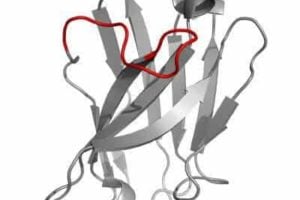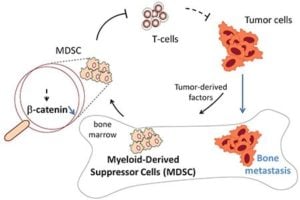journal of experimental medicine
Protein fuels inflammation in pancreatic and breast tumors
Separate studies published online on February 21 in the Journal of Experimental Medicine (www.jem.org) identify a protein that drives tumor-promoting inflammation in pancreatic and breast tumors.
Inflammatory reactions come in several flavors –…
MIT researchers study the danger of toxoplasma parasites
CAMBRIDGE, Mass. — About one-third of the human population is infected with a parasite called Toxoplasma gondii, but most of them don’t know it. Though Toxoplasma causes no symptoms in most people, it can be harmful to individuals with suppressed …
Researchers discover new signaling pathway linked to inflammatory disease
Scientists at the University of California, San Diego School of Medicine have described for the first time a key inhibitory role for the IL-1 signaling pathway in the human innate immune system, providing novel insights into human inflammatory bowel…
A discovery could be important for the therapy of lymphoma and leukemia
A recent scientific discovery made by researchers at the Institut de recherches cliniques de Montréal (IRCM) led by Dr. Javier Marcelo Di Noia, Director of the Mechanisms and Genetic Diversity research unit, was published online today by The Journa…
Scientists identify molecular gatekeeper of arthritis
Elimination of a molecular gatekeeper leads to the development of arthritis in mice, scientists report in a study published in the Journal of Experimental Medicine. The newly discovered gatekeeper is a protein that determines the fate — survival o…
Staph study could help with treatment for lupus
Researchers have for the first time described a method that Staphylococcus aureus (staph) infection uses to inactivate the body’s immune system. A protein produced by the staph bacteria causes previously healthy B cells — a specialized cell of the immune system — to commit suicide, a process called apoptosis. “By the targeted elimination of disease-causing B cells, properly dosed injections of SpA may have the potential to control the over-activity of the immune system that causes damage in autoimmune diseases like lupus and in certain cancers,” said Gregg Silverman, M.D., UCSD professor of medicine and senior author of the paper.
Researchers ID staph trick to kill off healthy cells
The method that Staphylococcus aureus (staph) infection uses to inactivate the body’s immune response and cause previously healthy B cells to commit suicide, is described for the first time by researchers at the University of California, San Diego (UCSD) School of Medicine. Normally, B cells mount an early defense against invading bacteria. From this immunologic experience, memory B cells are developed with the ability to quickly recognize these antigens and destroy the bacteria if they return in the future. When staph infections occur, however, this important process for immune defense can be corrupted.


